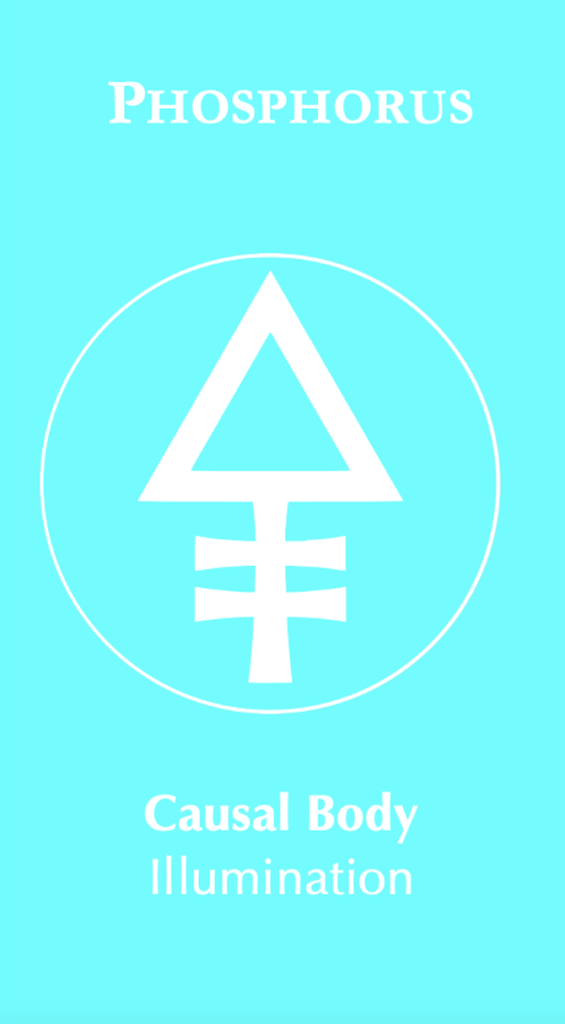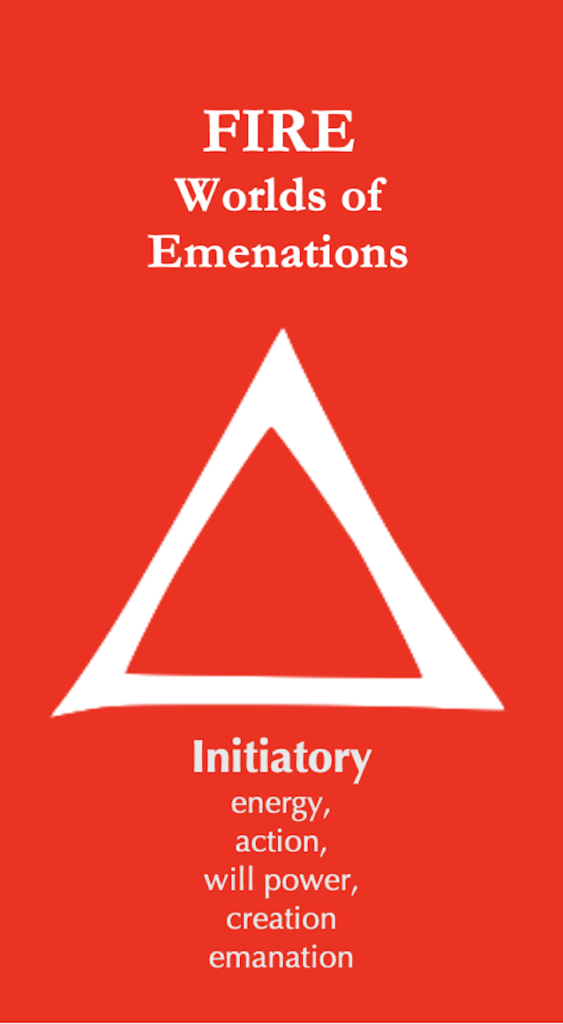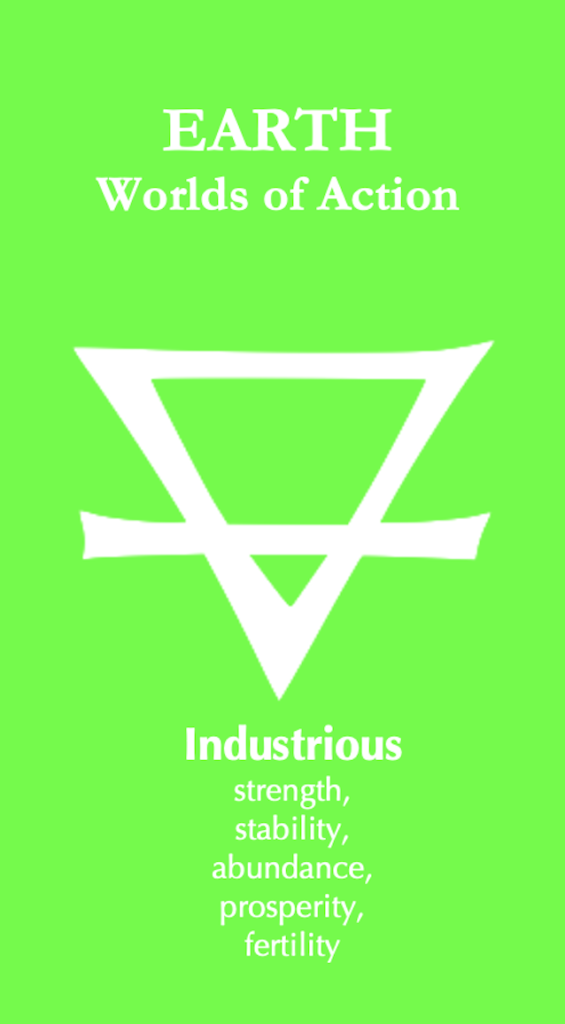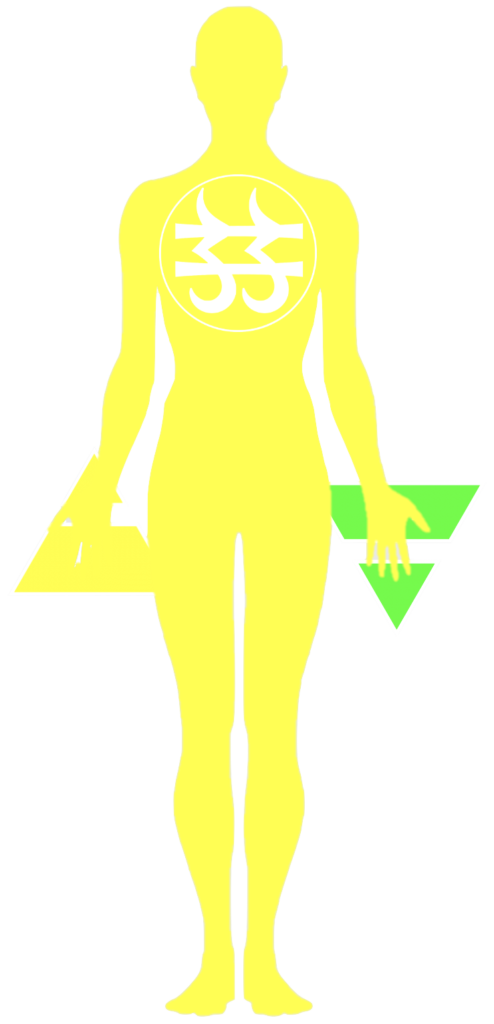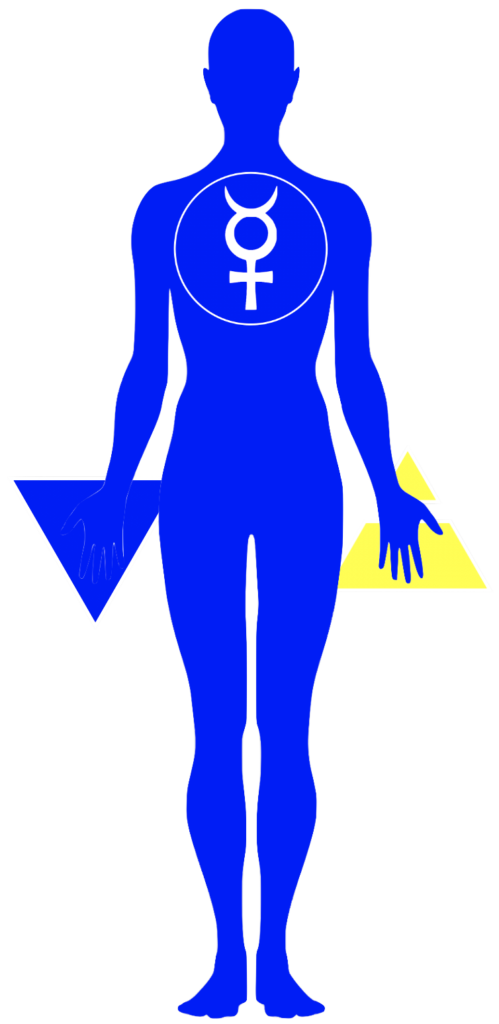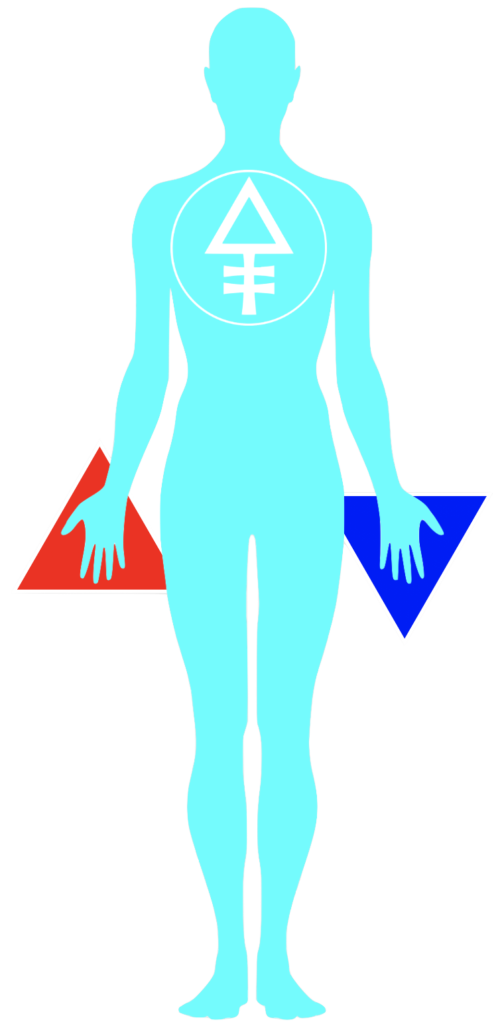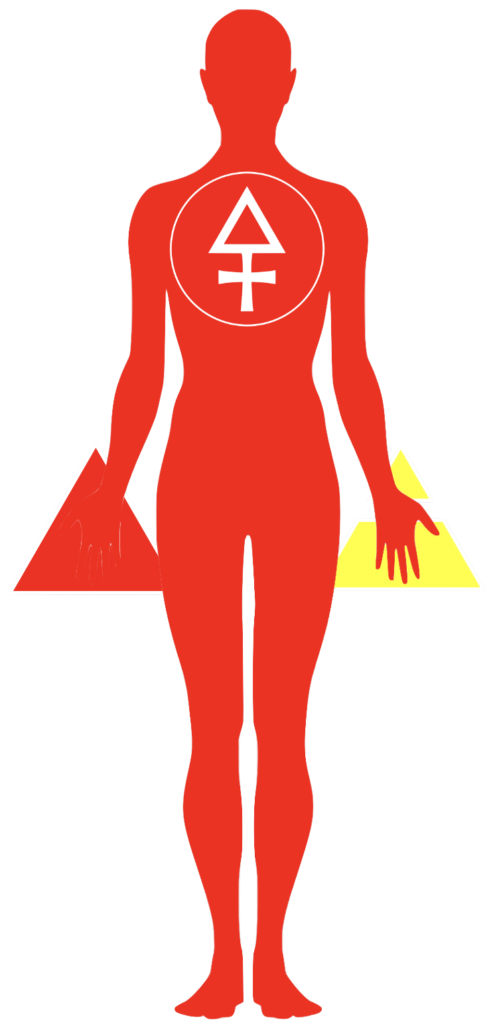Causal Body
CAUSAL BODY
[Imagination]

In esoteric traditions, the causal body, also known as “Karana Sharira” in Hindu philosophy, is a higher aspect of the self beyond the Physical, Astral, and Mental Bodies. It stores individual karma, representing past actions across lifetimes. Serving as a seat of individuality and higher consciousness, it holds the soul’s evolutionary blueprint and spiritual potential on a higher plane of existence. Associated with wisdom intuition, and spiritual insight, it guides spiritual evolution through practices like meditation and self-reflection. Unlike transient bodies, the causal body is eternal facilitating liberation from the cycle of birth and death through purification and refinement
The Egoic Demise: A Path to Psychological Development and Spiritual Awakening
In the journey of psychological development and spiritual awakening, the concept of “egoic demise” holds a significant place. This transformative process involves the dissolution of the ego—the constructed sense of self that often hinders our growth and true understanding of our essence. In this blog, let’s explore what egoic demise means, how it contributes to psychological development, and practical steps to facilitate this profound shift.
Understanding the Ego
Before delving into egoic demise, it’s essential to understand what the ego is. In psychological terms, the ego is the part of our identity that is constructed through our experiences, beliefs, and perceptions. It is the “I” that we present to the world, shaped by societal norms, personal history, and our need for validation and survival.
The ego is not inherently negative; it helps us navigate the world and establish our individuality. However, it can become problematic when it dominates our thoughts, emotions, and actions, leading to fear, attachment, and separation from our true selves and others.
What is Egoic Demise?
Egoic demise refers to the process of transcending the ego’s control over our psyche. It is the dismantling of the false self to reveal the true self—our authentic essence that is connected to a greater consciousness. This process is often associated with spiritual enlightenment but is also a critical aspect of psychological maturity.
The Role of Egoic Demise in Psychological Development
Egoic demise is integral to psychological development for several reasons:
- Self-Realization:By shedding the layers of the ego, individuals can discover their true nature, leading to greater self-awareness and authenticity.
Emotional Freedom:The ego often clings to past traumas, fears, and desires. Letting go of these attachments can result in emotional liberation and inner peace.
Improved Relationships:As the ego diminishes, individuals become more empathetic and compassionate, fostering healthier and more meaningful connections with others.
Resilience:Without the ego’s constant need for validation and control, individuals become more adaptable and resilient in the face of life’s challenges.
Spiritual Growth:Egoic demise opens the door to spiritual experiences and insights, allowing individuals to connect with a higher consciousness or divine presence.
Steps to Facilitate Egoic Demise
Egoic demise is a gradual and often challenging process that requires dedication and self-discipline. Here are some practical steps to help facilitate this transformation:
- Mindfulness and Meditation: Practicing mindfulness and meditation helps quiet the mind and observe the ego’s patterns without attachment. Regular meditation can cultivate inner stillness and awareness, making it easier to recognize and transcend the ego’s influence.
- Self-Inquiry: Engage in self-inquiry practices, such as asking “Who am I?” beyond the superficial labels and roles. This deep questioning can help dismantle the ego’s constructed identity and reveal the true self.
- Embrace Vulnerability: Allow yourself to be vulnerable and open to new experiences. Vulnerability breaks down the ego’s defenses and fosters genuine connections with others.
- Let Go of Attachments: Identify and release attachments to material possessions, status, and outcomes. The ego thrives on attachment and control, so letting go is a crucial step in its demise.
- Practice Compassion and Forgiveness: Cultivate compassion and forgiveness towards yourself and others. These practices soften the ego’s rigid boundaries and promote a sense of unity and interconnectedness.
- Seek Guidance: Work with spiritual teachers, therapists, or mentors who can provide guidance and support on your journey. Their insights can help you navigate the challenges and breakthroughs of egoic demise.
- Reflect on Mortality: Contemplate the impermanence of life and the inevitability of death. This reflection can put the ego’s concerns into perspective and encourage a shift towards deeper values and truths.
- Engage in Service: Actively engage in acts of service and altruism. Serving others selflessly diminishes the ego’s focus on self-interest and fosters a sense of connection and purpose.
Embracing the Journey
Egoic demise is not a one-time event but an ongoing journey of self-discovery and growth. It involves facing and integrating the shadow aspects of ourselves and continually choosing love and awareness over fear and separation. While the process can be challenging and even painful, it ultimately leads to a more authentic, fulfilled, and spiritually connected life.
In embracing egoic demise, we open ourselves to the vast potential of our true nature. We move beyond the confines of the ego, experiencing life with greater clarity, joy, and compassion. This path is both a profound psychological development and a sacred spiritual journey, guiding us towards the wholeness and enlightenment that lies within us all.
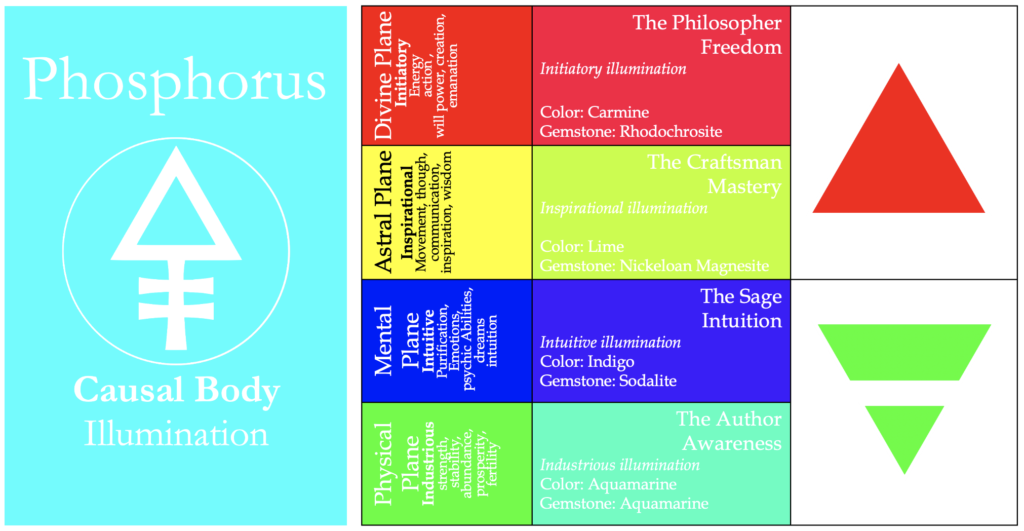

Phosphorus
Esoteric and Alchemical aspects linked to Phosphorus:
Illumination and Enlightenment: Phosphorus derives its name from the Greek word “phōs,” meaning light, and “phoros,” meaning bearer. In alchemy, phosphorus is symbolically connected to illumination and enlightenment. It represents the inner light or spiritual awakening.
Solar Symbolism: Phosphorus is often associated with solar symbolism in alchemical traditions. The connection to the sun relates to its ability to emit light and signify the metaphorical “inner sun” or spiritual enlightenment.
Dual Nature: Phosphorus is notable for its dual nature, existing in various allotropes with distinct properties. In alchemy, this duality might be interpreted as representing the integration of opposites or the balance between opposing forces.
Alchemy of the Mind: Phosphorus has been linked to mental and spiritual alchemy, suggesting processes of refinement and transformation within the mind and consciousness. It symbolizes the purification and elevation of mental faculties.
Connection to the Morning Star: Phosphorus is often associated with the planet Venus when appearing as the morning star. In this context, it carries esoteric associations with love, beauty, and spiritual awakening, connecting it to the divine feminine.
Symbolism of Lucifer: The name “Lucifer” is sometimes associated with the Morning Star (Venus) and has been historically linked to phosphorus. The symbolic association with Lucifer, the light-bringer, can be interpreted in various ways, including the pursuit of knowledge and enlightenment.
Combustibility and Transformation: Phosphorus is known for its combustible nature, easily catching fire in air. In alchemy, this property is symbolic of the transformative nature of the alchemical process, where base substances are metaphorically “burned away” to reveal higher spiritual truths.
Esoteric and Alchemical Purpose of the Causal Body:
The concept of the Causal Body is rooted in esoteric and metaphysical traditions, particularly and is related spiritual teachings. The Causal Body is considered a higher and more refined aspect of the human subtle anatomy, representing the accumulation of spiritual experiences and wisdom gained over multiple lifetimes. Here are some esoteric properties associated with the Causal Body:
Accumulation of Spiritual Experiences: The Causal Body stores the spiritual experiences, insights, and lessons acquired by an individual throughout their various incarnations. It serves as a repository of the soul’s evolutionary journey.
Karmic Impressions: The Causal Body is associated with the accumulation of karma, which represents the consequences of one’s actions and choices. It holds the karmic imprints from past lives, influencing an individual’s current circumstances and future experiences.
Higher Spiritual Realms: The Causal Body is considered to exist on a higher plane or dimension than the physical, astral, and mental bodies. It is often associated with realms of pure consciousness and spiritual illumination.
Connection to the Divine: The Causal Body is seen as a direct link to the divine or universal consciousness. It reflects the individual soul’s journey toward unity with the divine source and the realization of its own divine nature.
Immortality of the Soul: Unlike the physical body, which undergoes birth and death, the Causal Body is believed to persist beyond individual lifetimes. It is considered immortal and continues to evolve as the soul progresses on its spiritual journey.
Facilitates Spiritual Evolution: The Causal Body plays a crucial role in the spiritual evolution of the individual. Through the process of reincarnation, the soul gains experiences, refines its qualities, and contributes to the growth of the Causal Body.
Access to Higher Knowledge: The Causal Body is grants access to higher levels of spiritual knowledge and wisdom. As the soul evolves, it gains a deeper understanding of universal truths and the nature of existence.


